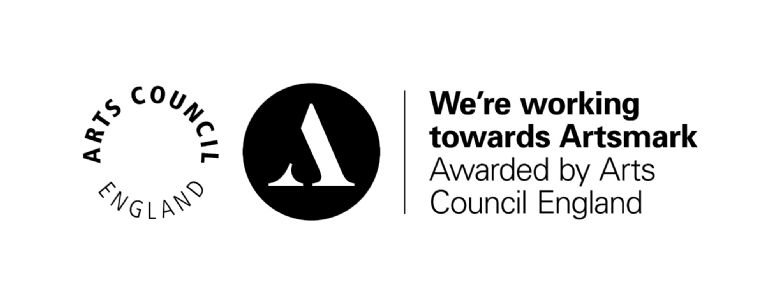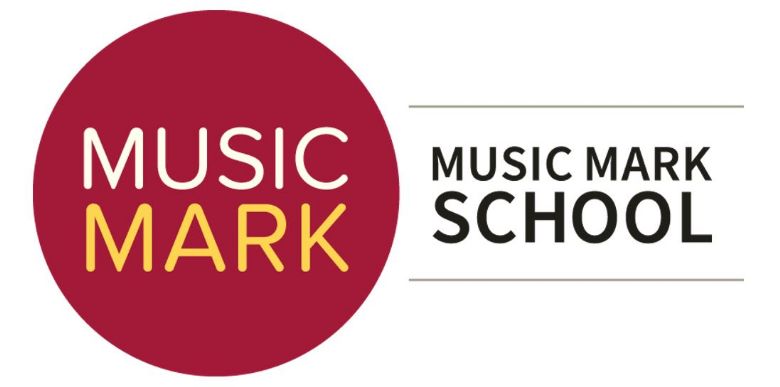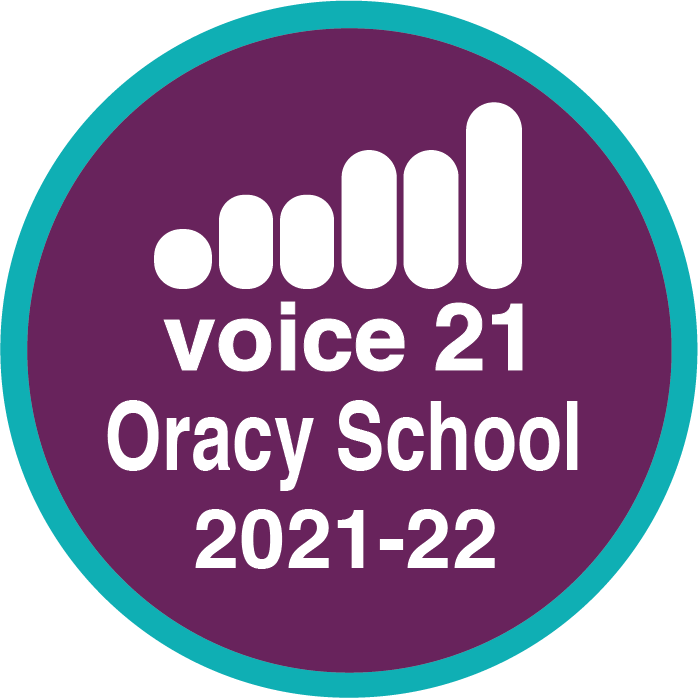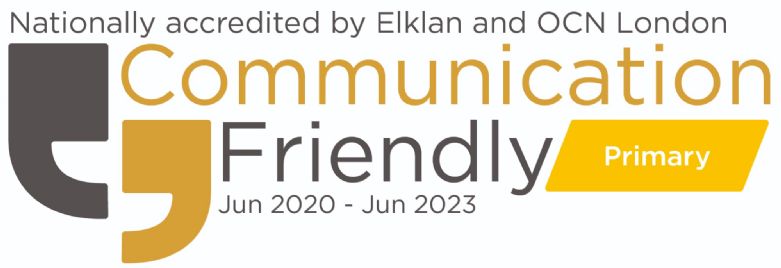Music



At Southfields Primary School we have a very vibrant music department.
As a school, we believe that 'communication is key' and Music is used to enhance pupils' experiences and enable them to express themselves. Music enables us to explore cultures and perspectives in a range of communication methods and by learning how to use a variety of different tuned and untuned instruments, it becomes a vehicle for personal expression as well as a way of coming together. We understand that learning about the history of music is key to developing children's understanding of music today and how key artists have helped shape different genres. Children are given the opportunity to showcase their talent through regular school performances as well as graded exams in order to explore music as a future career path. We want our students to explore the benefits of music for mindfulness and well-being and provide them with the tools needed to enjoy and appreciate a range of music genres.
The music curriculum is provided for all students across the school where they learn to play a tuned or un-tuned instrument, create and compose music, create rhythms, learn to read basic music notation, use music technology appropriately, listen to various music genres and recreate sounds & rhythms and begin to develop a history of music. A lot of emphasis is placed on singing for all year groups where some pupils will get the opportunity to participate in performances or special events throughout the year.
Children also have the opportunity to take part in various music events throughout the year, for example, performances in the community and BIG SING events.
As well as providing the music curriculum across all classes within the school, we have an extensive array of instruments that can be learnt which are taught by specialist peripatetic teachers. Students from year 2 upwards can choose to learn one of the following instruments either as an individual lesson or in a group. These lessons happen during the school day and students have the opportunity to take graded examinations with the associated board of music when they reach the required standard.
Aims and objectives
Music is a unique way of communicating that can inspire and motivate children. It is a vehicle for personal expression and it can play an important part in the personal development of people. Music reflects the culture and society we live in, and so the teaching and learning of music enables children to better understand the world they live in. Besides being a creative and enjoyable activity, music can also be a highly academic and demanding subject. It also plays an important part in helping children feel part of a community. We provide opportunities for all children to create, play, perform and enjoy music, to develop the skills to appreciate a wide variety of musical forms, and to begin to make judgements about the quality of music.
The aims of music are to enable children to:
· know and understand how sounds are made and then organised into musical structures;
· know how music is made through a variety of instruments;
· know how music is composed and written down;
· know how music is influenced by the time, place and purpose for which it was written;
· develop the interrelated skills of performing, composing and appreciating music.
· develop their creativity by exploring a wide range of musical aspects.
· develop social skills whilst working within different music settings.
Teaching and learning style
At Southfields, we make music an enjoyable learning experience. We encourage children to participate in a variety of musical experiences through which we aim to build up the confidence of all children. We teach them to listen and to appreciate different forms of music. As children get older, we expect them to maintain their concentration for longer and to listen to more extended pieces of music. Children develop descriptive skills in music lessons when learning about how music can represent feelings and emotions. We teach them the disciplined skills of recognising pulse and pitch. We often teach these together. We also teach children how to work with others to make music and how individuals combine together to make sounds. We also teach them musical notation and how to compose musical pieces, inspiring pupils to express their thoughts and emotions through music.
We recognise that we have children of differing musical abilities in all classes, so we provide suitable learning opportunities for all children by matching the challenge of the task to the ability of the child. We achieve this in a variety of ways by:
· setting common tasks which are open-ended and can have a variety of responses;
· setting tasks of increasing difficulty with some children not completing all tasks;
· grouping children by ability and setting different activities for each ability group;
· providingresources of different complexity depending on the ability of the child;
· using a teaching model where all responses are welcome, encouraging pupils working at different levels to participate in the lesson.
Music curriculum planning
Music is a foundation subject in the National Curriculum. We have KAPOW to support our planning in addition to a Music Director with Music Specialism who plans, teaches, and supports all year groups across the primary phase.
Our curriculum planning in music is in three phases; long-term, medium-term and short-term. Our long-term plan maps the music topics studied in each term during the key stages. The music subject leader works this out in conjunction with teaching colleagues in each year group. Through this programme of study we teach the knowledge, skills and understanding set out in the new National Curriculum.
Our planning includes the use of recording software, such as GarageBand, and closely follows the topics explored across different subjects. During songwriting sessions, the pupils are encouraged to apply their instrument skills to a current music setting, whilst effectively using their English language knowledge in order to write lyrics and express their emotions.
Our medium-term plans, which we have taken from KAPOW, give details of each unit of work for each term. The music subject leader is responsible for monitoring and reviewing the accessibility of these plans.
Our short-term plans are completed by the class teacher and list the specific learning objectives of each lesson. The class teacher is responsible for keeping these individual plans, and discusses them with the music subject leader on an informal basis. These plans also come from Music Express. The teacher would annotate these as appropriate.
Children are offered the opportunity to study a musical instrument with peripatetic teachers through the Cambridge Music Partnership. Parents who want their children to participate in the scheme must purchase or hire the instrument and pay the additional music lesson fees on a termly basis. Lessons are taught on an individual or small group basis during the school day.
The contribution of music to teaching in other curriculum areas
English
Music contributes to the teaching of English in our school by actively promoting the skills of reading, speaking and listening. Children develop their language skills through singing songs, with attention to diction, meaning, rhythm and rhyme. They use reference books and develop research skills when finding out about the history of music and musicians. Music is also used to stimulate discussion. Through working with others in a musical setting, children develop their ability to communicate ideas effectively.
“Research has shown that there are benefits of active engagement with music which go beyond the development of musical knowledge and skills and the enjoyment of musical knowledge and skills and the enjoyment and appreciation of music. Making music can support the development of literacy, numeracy and listening skills.”
Professor Sue Hallam, Dean of Faculty of Policy and Society, Institute of Education, University of London.
Mathematics
Music contributes to the teaching of mathematics in that children who study the structure of music are observing patterns and processes. Talent in music is often linked with talent in mathematics, as the rhythm and structure of music is mathematically based. During music lessons, teachers use fractions and different aspects of mathematics in order to evidence the relation between note values and rhythm.
Computing
Computing is used in music where appropriate. Children use computer programs to compose music. They also use Computing in music to enhance their research skills through use of the Internet. Pupils record their own compositions using recording software, understanding how music can be created electronically as well as organically. By doing so, pupils develop a better perception of music development through time.
Personal, social and health education (PSHE) and citizenship
Music contributes to the teaching of personal, social and health education and citizenship. Through the common goal of making music, children learn to work effectively with other people and build up good relationships. Music is the basis of many social activities and has an important role to play in the personal development of many young people. Participation in successful public musical performances is one of the most memorable things young people do at school and by running a school choir, pupils across all ages have the opportunity to interact and build their confidence through an activity they all enjoy.
Spiritual, moral, social and cultural development
Listening, creating or performing music can sometimes be a moving and even spiritual experience. We encourage children to reflect on the important effect that music has on people’s moods, senses and quality of life. Children have the opportunity to encounter music from many cultures and, through their growing knowledge and understanding of the music; they develop more positive attitudes towards other cultures and societies. In order to do so, the resources used in music lessons present the correlation between different music styles associated to different cultures, demonstrating how music can be used as a social and political vehicle.
Children with special needs or who are gifted and talented
We teach music to all children, whatever their ability, as part of the school curriculum policy to provide a broad and balanced education for all children. We provide learning opportunities matched to the needs of children with learning difficulties and also those who are gifted and talented and we take into account the targets set for individual children.
Year 4 pupils have the opportunity to study whole class instrumental lessons provided by Peterborough Music Hub, learning how to play various string instruments. The aim of the sessions is to provide pupils with a music foundation, inspiring them to study a musical instrument.
Assessment and recording
We assess children’s work in music by making informal assessments through observation during lessons. At the end of a unit of work, we make a summary judgement about the work of each pupil in relation to the National Curriculum levels of attainment. We use this as the basis for assessing the progress of the child, and we pass this information on to the next teacher at the end of the year.
Before each half-term, pupils who study individual music lessons perform in the school’s music assembly in order to improve their stage skills and prepare for future ABRSM Graded Exams.
Resources
We have sufficient resources for all music teaching units in the school and we actively explore different teaching methods by working closely with Peterborough Music Hub.
Funding is allocated annually for music and the subject leader consults staff, identifies needs and submits a wish list to the head teacher. If the subject leader requires a bigger whole school impact he/she would submit a business plan to the head teacher. Music funding is used to influence learning, assuring that music instruments are well-maintained in order to effectively support pupils in their musical journey.
By organising educational music trips, pupils have the opportunity to explore music in different settings, developing an understanding of all music styles.
Monitoring and review
The music subject leader is responsible for monitoring the standard of children’s work and for the quality of teaching in music. The music subject leader is also responsible for supporting colleagues in the teaching of music, for being informed about current developments in the subject and for providing a strategic lead and direction for the subject in the school. The head teacher allocates management time to the music subject leader so that he/she can review samples of children’s work and visit classes to observe music teaching across the school.
The instrument lessons currently on offer are:
Guitar (Classical and electric)
Piano
Keyboard
Flute
Clarinet
Saxophone
Recorder (treble recorder and tenor recorder)
Drums
Ukulele
Some instruments can be provided by the school on a loan so students are able to continue their learning at home in between lessons.
At the end of each term we hold a concert for musicians to perform to parents – ‘Southfields Musical Extravaganza’.
Pupils have said:
“Music is the key to the soul.” – Lucy
“I enjoy music because it helps me relax.” – Esmé
“I love music because you can express how you feel.” – Emily
“Music is the best subject in school. We can make art with our voices.” – Louise
“I like music because you can express how you feel without having to tell someone directly.” – Morgan
The Music Policy can be found here.



















